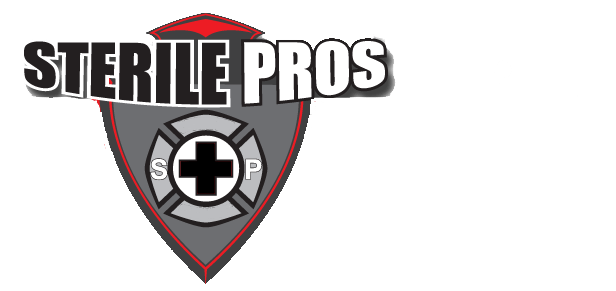When a traumatic event occurs in Arizona, whether it’s a crime scene, unattended death, or accident involving bloodborne pathogens, one of the first questions property owners ask is who’s responsible for cleaning it up and whether the law requires professional cleanup. Understanding Arizona’s biohazard cleanup regulations can help residents make informed decisions during an already difficult time.
The short answer is that while Arizona law doesn’t always mandate professional cleanup for private residences, strict federal and state regulations govern how biohazardous materials must be handled, transported, and disposed of. These laws make professional Arizona biohazard cleanup services the safest and most compliant option.
 What Qualifies as a Biohazard in Arizona
What Qualifies as a Biohazard in Arizona
Before diving into legal requirements, it’s important to understand what Arizona considers a biohazard. According to state regulations, biohazardous materials include any biological substances that pose a threat to human health or the environment.
Common biohazards that require specialized cleanup include blood and bodily fluids, human or animal waste, medical waste including sharps like needles or blades, drug residue such as fentanyl or methamphetamine, and infectious disease contamination. These materials can harbor dangerous pathogens including HIV, hepatitis B and C, MRSA, and other infectious diseases that pose serious health risks.
Federal OSHA Requirements That Apply in Arizona
The Occupational Safety and Health Administration sets nationwide standards for handling biohazardous materials, and these regulations apply throughout Arizona. OSHA’s Bloodborne Pathogens Standard (29 CFR 1910.1030) is the primary federal regulation governing biohazard cleanup.
This standard requires that any employee or worker handling potentially infectious materials must receive proper training in bloodborne pathogen safety, use appropriate personal protective equipment, and follow strict cleanup and disposal procedures. The regulation mandates a written exposure control plan, universal precautions for all blood and bodily fluid contact, proper labeling and disposal of biohazardous waste, and employee training and vaccination against hepatitis B.
For workplaces and public spaces, only trained professionals should handle biohazard cleanup. Employers who allow untrained workers to clean biohazardous materials can face significant OSHA fines and penalties.
OSHA’s Hazardous Waste Operations and Emergency Response standard (29 CFR 1910.120) also applies to cleanup operations involving hazardous substances and mandates specific training and safety protocols for responders.
Arizona State Regulations for Biohazard Cleanup
Beyond federal requirements, Arizona has specific state regulations governing biohazardous waste. The Arizona Department of Environmental Quality and the Arizona Department of Health Services regulate the handling and disposal of biohazardous materials throughout the state.
Arizona Administrative Code Article 14 (AAC R18-13-1401 to 1420) defines biohazardous medical waste and establishes requirements for its management. These regulations require proper containment and labeling of all biohazardous waste, disposal through licensed medical waste transporters, and documentation of all disposal activities.
Generators of biohazardous medical waste must package materials in approved red bags or rigid containers clearly marked with the biohazard symbol. Storage requirements are also strict. Biohazardous medical waste cannot be stored for more than 90 days unless specific design and operational requirements are met. Putrescible biohazardous waste must be refrigerated if stored longer than a few days to prevent odors and pest issues.
Arizona requires that biohazardous waste be transported only by companies holding proper ADEQ transporter permits. Improper disposal or transportation of biohazardous materials can result in substantial fines and legal consequences.
Property Owner Responsibilities Under Arizona Law
For private residences, Arizona law doesn’t explicitly require property owners to hire professional biohazard cleanup companies after every traumatic incident. However, property owners remain legally responsible for ensuring their property is safe for occupancy.
If contamination isn’t cleaned correctly, property owners could face serious consequences including health risks for future occupants, liability issues if someone becomes ill or injured due to improper cleanup, potential lawsuits from tenants or buyers who develop health problems, and violations of local health codes that could result in property condemnation.
Landlords and property managers have additional responsibilities. They carry a legal duty to ensure rental spaces are safe for tenants. Inadequate cleanup of biohazardous materials creates health hazards that expose property owners to significant legal liability.
In commercial properties and workplaces, the requirements are even stricter. Business owners must comply with OSHA standards, which effectively mandate professional cleanup for any workplace incident involving blood or other potentially infectious materials.
When Professional Cleanup Becomes Legally Mandatory
While homeowners have some discretion about DIY cleanup in their personal residences, several situations make professional biohazard cleanup legally required in Arizona.
Professional cleanup is mandatory in workplaces and commercial properties where OSHA regulations apply, rental properties where landlords have legal duties to provide safe housing, properties where local health departments have issued cleanup orders, and situations involving regulated medical waste that requires licensed transporter disposal.
Even when not strictly required by law, professional cleanup is almost always the safest and most practical choice. Attempting DIY cleanup of biohazardous materials puts individuals at serious health risk and may result in incomplete decontamination that leaves dangerous pathogens behind.
Legal Consequences of Improper Cleanup
Failing to properly clean and dispose of biohazardous materials in Arizona can lead to significant legal and practical problems.
Property owners who neglect proper cleanup face risks including lingering pathogens and persistent odors, mold growth and pest infestations, significant long-term property damage, legal liability for health hazards, and potential property condemnation by local health departments.
For businesses and employers, the consequences are even more severe. OSHA violations can result in fines ranging from thousands to tens of thousands of dollars per violation. Repeated or willful violations carry even steeper penalties.
Property owners may also face civil lawsuits from individuals who become ill due to exposure to improperly cleaned biohazards. These lawsuits can result in substantial damages, especially if negligence can be proven.
Why Professional Biohazard Cleanup Matters
Even when Arizona law doesn’t explicitly require professional cleanup, there are compelling reasons to hire certified specialists.
Professional biohazard cleanup companies provide essential protections including compliance with all federal and state regulations, proper use of hospital-grade disinfectants and proven decontamination methods, licensed transportation and disposal of biohazardous waste, thorough removal of all contaminated materials including those not visible to the untrained eye, and peace of mind that the space is truly safe and sanitary.
Certified technicians undergo extensive training in bloodborne pathogen safety, proper use of personal protective equipment, decontamination techniques, and safe disposal procedures. They use industrial-grade equipment and EPA-registered disinfectants that aren’t available to the general public.
Professional companies also maintain detailed documentation of their work, which can be crucial for insurance claims, real estate transactions, and proving legal compliance.
What to Look for in an Arizona Biohazard Cleanup Company
If professional cleanup is needed, Arizona residents should ensure the company they hire meets all legal requirements and industry standards.
Look for companies that hold proper ADEQ medical waste transporter permits, carry appropriate insurance and bonding, employ certified and trained technicians, follow OSHA bloodborne pathogen standards, provide detailed documentation and certificates of decontamination, and offer 24/7 emergency response.
Reputable companies will also work directly with insurance providers and handle the paperwork associated with claims. They should provide compassionate, discreet service that respects the difficult circumstances families face.
Insurance Coverage for Biohazard Cleanup in Arizona
Most Arizona homeowners insurance policies provide coverage for biohazard cleanup under dwelling coverage or additional living expenses provisions. This coverage typically extends to crime scenes, suicides, unattended deaths, and accidental deaths.
Professional biohazard cleanup companies can help navigate the insurance claims process, often working directly with insurers to ensure proper documentation and maximize coverage. This removes the financial burden from families during an already stressful time.
Local Health Department Authority
Beyond state and federal regulations, Arizona’s county and municipal health departments have authority to enforce cleanup in situations that pose public health risks.
If a property contains biohazardous contamination that creates a health hazard, local health officials can issue cleanup orders and even condemn properties until proper remediation is completed. This authority applies to both residential and commercial properties.
Property owners who receive cleanup orders from health departments must comply or face additional legal consequences including fines and potential criminal charges in severe cases.
Making the Right Decision
While Arizona law provides some flexibility for private property owners dealing with biohazardous materials, the practical and legal considerations strongly favor professional cleanup in nearly every situation.
The health risks alone make DIY cleanup dangerous. Bloodborne pathogens can survive on surfaces for days or weeks, and improper cleanup techniques may spread contamination rather than eliminate it. Professional technicians have the training, equipment, and experience to safely and completely decontaminate affected areas.
The legal requirements for proper disposal make professional services nearly essential. Arizona’s regulations for transporting and disposing of biohazardous waste are complex, and violations carry serious penalties. Licensed biohazard cleanup companies handle all aspects of legal disposal, protecting property owners from regulatory violations.
Understanding Arizona’s biohazard cleanup regulations helps residents make informed decisions during traumatic situations. While the law doesn’t always mandate professional cleanup for private residences, strict federal and state regulations govern how biohazardous materials must be handled and disposed of. Professional Arizona biohazard cleanup services ensure compliance with all applicable laws while protecting health and providing peace of mind during difficult times.
